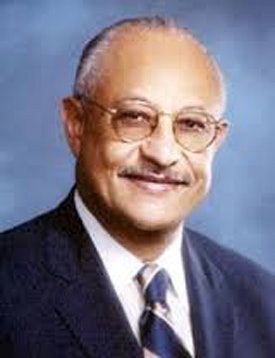Adult learners always have been a part of the fabric of American higher education, although policy discussions up until recently have primarily centered around the needs of students who are just leaving high school. Thomas Edison State University, one of New Jersey’s 11 public universities and colleges, is one of the few schools designed specifically to serve that student population.
 Dr. George A. Pruitt
Dr. George A. PruittFor 35 years, TESU has been led by Dr. George A. Pruitt. After a long and distinguished career, Pruitt recently announced his plans to retire. He will take a year-long sabbatical before returning to the institution as a distinguished fellow at Thomas Edison’s John S. Watson School of Public and Continuing Studies.
“I think society is going through a reset that is going to require it to rethink how it looks at college and higher education. It already has, it just hasn’t caught up with it in terms of the public discussion,” Pruitt told Diverse in a phone interview last week. “People still refer to adults as ‘non-traditional’ students, but the fact of the matter is they have been the majority of students in American higher education for the last 20 or 25 years.”
TESU, however, has always focused on the needs of the so-called “non-traditional” student.
At the time of Pruitt’s arrival in 1982, TESU served 3,000 students out of one historic building, modeled after a Florentine palazzo, in downtown Trenton, New Jersey. Today, TESU serves more than 17,000 students and has since dramatically expanded its footprint in the city, restoring several more historic buildings in the process.
TESU offers its students online programming, one of the largest nursing programs in the state of New Jersey, and a robust complement of 17 graduate programs and a doctoral program. To better serve its students, the school was quick to adopt new innovations and technologies as they emerged.
“When I got here, there were no computers at this institution. We had some word processors and IBM Selectric typewriters,” Pruitt said. “[But] when the technology became available in the mid to late ‘80s to use that technology to knock down access barriers to adult students, we embraced it dramatically.’
Although it is hardly conceivable in the current higher ed landscape, there was a time before online education was a glimmer in anyone’s eye. Today, whole sectors of the industry have evolved around the need for flexible course offerings.
Now anyone can take Harvard or Stanford classes for free online. Schools like Southern New Hampshire University and Western Governors University are growing by leaps and bounds. TESU was one of the early adopters and innovators in that space.
“As far as I can tell, we’re one of the first accredited colleges and universities in United States that offer a four-year degree program online, so we didn’t follow into that space, we opened the door to that space,” Pruitt said.
“For us, the principal access barrier for adult students was the barriers of time and place,” Pruitt explained. “Our students don’t have the luxury of putting their lives on hold, the jobs, their careers, their families to go sit in a classroom somewhere at 10 o’clock on Monday, Wednesday and Friday.”
As chair of the Middle States Commission and member of the National Advisory Committee on Institutional Quality and Integrity, Pruitt has had ample opportunity to study issues of quality assurance and the stressors that some institutions face today. State-funded colleges and universities have been under particular pressure as public funding has been in a state of decline since the 1970s, placing more responsibility on schools to come up with alternative sources of funding or raise tuition, while simultaneously reexamining how they deliver education to their students.
“The idea that you go to college and the learning stops and then you go out and get a job and career and don’t study anymore — I think if people do a reality check, they’ll agree that that world is pretty much ending,” Pruitt said. “All of us are going to be required to be continually involved in education, to continually update and reinvent ourselves, and that means the academy, and particularly institutions like ours, will always be deeply central to that involvement.”
In Pruitt’s estimation, institutions that are financially stressed will run into trouble if they attempt to rectify their concerns by delving into new student populations in an effort to be all things to all people. The schools that succeed best are those that “know who they are,” as Pruitt put it.
“They’re better off staying in their lane, focusing on the students that they know how to serve well . . . ” Pruitt said. “I think that’s where American education is going to evolve to.”
After a long career at the helm of TESU, Pruitt said that now is an opportune moment to step down. “At some point you have to decide when enough is enough. Thrty-five years is a nice round number,” he commented.
TESU recently wrapped up a five-year strategic plan that was marked by several signature accomplishments: the institution acquired university status in 2015, developed its first doctoral program, and completed a capital plan, acquiring four new facilities in the process.
“I wanted to make sure that we ran across the finish line and didn’t limp,” Pruitt said. “I’ve never been afraid of being fired, but I’ve been terrified of staying around too long and letting inertia take over.”
Staff writer Catherine Morris can be reached at [email protected].



![Mentor Mentee [60287]](https://img.diverseeducation.com/files/base/diverse/all/image/2024/04/Mentor_mentee__60287_.662959db8fddb.png?auto=format%2Ccompress&fit=crop&h=100&q=70&w=100)

















